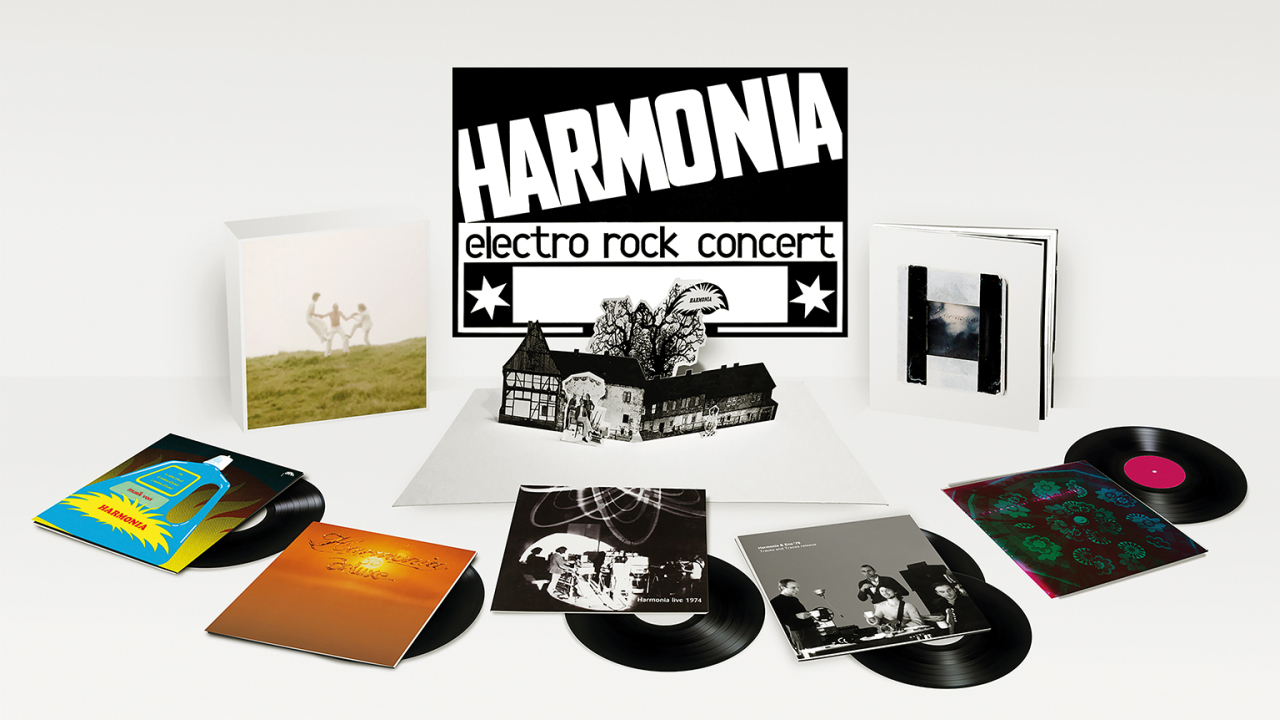Brian Eno wasn’t kidding around when he once declared that Harmonia were “the world’s most important rock group”. They were certainly original. In keeping with Germany’s rich tradition of experimental composers (Stockhausen, Koenig and other members of the Darmstadt School), they seemed to be intent on forging and refining a whole new language from the constituent parts of electronica, rock and ambient.
Hans-Joachim Roedelius and Dieter Moebius had already recorded two albums as Cluster before they teamed up with Neu! guitarist Michael Rother in 1973, the trio holing up in the Lower Saxony countryside to begin work on their debut LP. The resulting Musik Von Harmonia is a kosmische classic, built around percussive loops and pastoral rhythms with squirts of guitar and piping synths. Watussi nags away like a sweet headache; Dino is all rigour and clean propulsion; Veterano is as strange as it is alluring. By 1975’s Deluxe (co-produced by Conny Plank), Harmonia were about as pop as they were ever going to get, the music driven by a fresh sense of urgency and, on the title track, the inclusion of vocals for the first time on record. Yet their curiosity remains fully intact, spooning out twinkly weirdness and discord (10-minuter Walky-Talky) and, as on Kekse, approximating an almost baroque strain of electronic noise. Musical differences were cited as the cause of their split in ’76, though they briefly patched things up when Eno himself came over to visit later that year. The collaboration that ensued, Tracks And Traces, is more meditative than usual, albeit with a vaguely sinister undercurrent of disquiet. In the wake of Harmonia’s demise, it lay unreleased until 1997. All three albums form part of this indispensable vinyl package, along with the self-explanatory Live 1974 and Documents 1975, a rarities set drawn from studio tracks and in-concert recordings from Hamburg.

